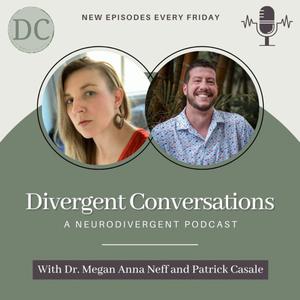
Divergent Conversations
Megan Neff & Patrick Casale
Reflections of Two Neurodivergent Clinicians
- 44 minutes 32 secondsEpisode 85: Giftedness (Part 6): Series Reflections and Insights
Navigating the world as a gifted individual can be emotionally taxing and filled with both internal and external challenges that are often dismissed or minimized by oneself and others. The giftedness label is often viewed as a privilege resulting in failure to recognize and offer support for the very real struggles that can come with it.
In this episode, Patrick Casale and Dr. Megan Anna Neff, two AuDHD mental health professionals, open up about their personal experiences and discuss the complexities of giftedness, identity, and coping mechanisms in the context of mental health.
Top 3 reasons to listen to the entire episode:
- Discover how giftedness and neurodivergence both intersect and differ, offering nuanced perspectives on recognizing and understanding these traits.
- Learn about how this giftedness series sparked deep self-reflection for the hosts, creating a space for them and listeners to explore the emotional layers of their experiences.
- Delve into thoughtful discussions on how societal perceptions of intelligence and privilege impact self-identity and mental health, challenging common assumptions about capability and success.
As you reflect on your own experiences or the experiences of those around you, consider the ways in which you navigate your identity and emotions. Remember, it’s okay to seek support and embrace your complexities.
————————————————————————————————
🎙️Listen to more episodes of the Divergent Conversations Podcast
🎙️Spotify
🎙️Apple
▶️ YouTube
————————————————————————————————
Thanks to Our Sponsors: iACTcenter, ADHD Online, & The Gifted Learning Lab
✨ iACTcenter:
The iACTcenter is an elite global ICF-accredited coach education and training program designed to train people to become confident, skilled, professional ADHD life coaches. They prepare aspiring coaches to make a living while making a difference in the lives of ADHDers and other neurodivergent people. Learn more at iactcenter.com.
Julien Mussi, our student, passed away unexpectedly during our inaugural class in 2015. We offer Julien Mussi Scholarships to honor his passion for helping others. Visit: iactcenter.com/scholarship
✨ ADHD Online:
ADHD Online offers clinically comprehensive evaluations and treatment for ADHD. With ADHD Online, you can start your assessment when you’re ready, complete it on your schedule, and get your results from a licensed psychologist in 3 to 5 days. Not only will you learn whether or not you have ADHD, but your diagnosis can also include related conditions like anxiety, depression, PTSD, and OCD, among 45 other diagnostic codes. ADHD Online believes that mental health care should be streamlined and accessible, so they offer their assessment at a fraction of the price you would pay for traditional evaluations and treatment. As a listener of the Divergent Conversations podcast, you can save $50 off your assessment, regularly priced at $179. Head to adhdonline.com/divergentconversations and use the code Divergentconversations50 at checkout.
The Gifted Learning Lab is all about empowering parents to raise their gifted and 2e kids with confidence and less conflict. If you’re looking for real, neurodivergent-affirming strategies, you can check out Danika’s free email mini-course on reducing power struggles at giftedlearninglab.com/power. And for those wanting a deeper dive, her coaching program, 'Support Your Intense Gifted/2e Kid,' offers hands-on support for the journey.
Mentioned in this episode:
ADHD Online
ADHD Online offers clinically comprehensive evaluations and treatment for ADHD. With ADHD Online, you can start your assessment when you’re ready, complete it on your schedule, and get your results from a licensed psychologist in 3 to 5 days. Not only will you learn whether or not you have ADHD, but your diagnosis can also include related conditions like anxiety, depression, PTSD, and OCD, among 45 other diagnostic codes. ADHD Online believes that mental health care should be streamlined and accessible, so they offer their assessment at a fraction of the price you would pay for traditional evaluations and treatment. As a listener of the Divergent Conversations podcast, you can save $50 off your assessment, regularly priced at $179. Head to adhdonline.com/divergentconversations and use the code Divergentconversations50 at checkout.
iACTcenter
The iACTcenter is an elite global ICF-accredited coach education and training program designed to train people to become confident, skilled, professional ADHD life coaches. They prepare aspiring coaches to make a living while making a difference in the lives of ADHDers and other neurodivergent people. Learn more at iactcenter.com. Julien Mussi, our student, passed away unexpectedly during our inaugural class in 2015. We offer Julien Mussi Scholarships to honor his passion for helping others. Visit: iactcenter.com/scholarship
The Gifted Learning Lab
The Gifted Learning Lab is all about empowering parents to raise their gifted and 2e kids with confidence and less conflict. If you’re looking for real, neurodivergent-affirming strategies, you can check out Danika’s free email mini-course on reducing power struggles at giftedlearninglab.com/power. And for those wanting a deeper dive, her coaching program, 'Support Your Intense Gifted/2e Kid,' offers hands-on support for the journey.
20 December 2024, 11:00 am - 1 hour 6 minutesEpisode 84: Giftedness (Part 5): Navigating Giftedness in Marginalized Communities [featuring Sheldon Gay]
As a gifted, BIPOC individual, it can be uniquely challenging to navigate day-to-day experiences and find meaningful connections, especially prior to the discovery of giftedness.
In this episode, Patrick Casale and Dr. Megan Anna Neff, two AuDHD mental health professionals, along with Sheldon Gay, an entrepreneur, podcast host, and the Vice-Chair of the neurodivergent-affirming non-profit, Umbrella US, discuss his unique perspective on being seen beneath our social masks, the societal impact of intellectual identity as a BIPOC human, and his personal self-discovery journey of giftedness.
Top 3 reasons to listen to the entire episode:
- Discover the complexities and societal pressures of intellectual identity and how they shape interactions and self-perception, as well as the struggle to find genuine connections while managing unique cognitive abilities.
- Gain a deeper understanding of the unique challenges faced by gifted individuals, especially within marginalized communities. Learn about the burden of expectations, code-switching as a gifted black man, and the journey of self-acceptance.
- Learn about Sheldon Gay's perspective on navigating biases in professional spaces, the importance of authenticity, and the impact of self-trust and empathy in both personal and professional settings.
As you explore the depths of your own identity and capabilities, remember the importance of self-trust and creating spaces where you can be your authentic self. Reflect on how societal expectations may have influenced your journey and seek communities that celebrate your unique experiences and perspectives.
More about Sheldon:
Sheldon Gay is an entrepreneur with a background in engineering and creating memorable customer experiences. He's worked in various fields, including healthcare, nonprofits, and education-technology. In addition to growing multiple businesses, he is currently the Vice-Chair of the neurodivergent-affirming non-profit, Umbrella US. As a Black man who discovered later in life that he’s neurodivergent, he sees the world from a different angle than most. Due to his unique perspective, he knows all too well how it feels to be “the only one” in a room. After intense self-discovery work in his early 40s, he found answers to life-long questions and received freedom from burdens he'd carried since he was a child. Now, he uses his experiences to help others embrace their true selves and release their burdens as well. Sheldon helps his audiences become curious about their minds, combat loneliness through community, and experience peace and joy through authenticity.
- Website: sheldongayisbugn.com
- Social Media: @imustbebugn and @imustbebugn.bsky.social
———————————————————————
🎙️Listen to more episodes of the Divergent Conversations Podcast here
🎙️Spotify
🎙️Apple
▶️ YouTube
———————————————————————
Thanks to Our Sponsors: iACTcenter & The Gifted Learning Lab
✨ iACTcenter:
The iACTcenter is an elite global ICF-accredited coach education and training program designed to train people to become confident, skilled, professional ADHD life coaches. They prepare aspiring coaches to make a living while making a difference in the lives of ADHDers and other neurodivergent people. Learn more at iactcenter.com.
Julien Mussi, our student, passed away unexpectedly during our inaugural class in 2015. We offer Julien Mussi Scholarships to honor his passion for helping others. Visit: iactcenter.com/scholarship
The Gifted Learning Lab is all about empowering parents to raise their gifted and 2e kids with confidence and less conflict. If you’re looking for real, neurodivergent-affirming strategies, you can check out Danika’s free email mini-course on reducing power struggles at giftedlearninglab.com/power. And for those wanting a deeper dive, her coaching program, 'Support Your Intense Gifted/2e Kid,' offers hands-on support for the journey.
Mentioned in this episode:
iACTcenter
The iACTcenter is an elite global ICF-accredited coach education and training program designed to train people to become confident, skilled, professional ADHD life coaches. They prepare aspiring coaches to make a living while making a difference in the lives of ADHDers and other neurodivergent people. Learn more at iactcenter.com. Julien Mussi, our student, passed away unexpectedly during our inaugural class in 2015. We offer Julien Mussi Scholarships to honor his passion for helping others. Visit: iactcenter.com/scholarship
The Gifted Learning Lab
The Gifted Learning Lab is all about empowering parents to raise their gifted and 2e kids with confidence and less conflict. If you’re looking for real, neurodivergent-affirming strategies, you can check out Danika’s free email mini-course on reducing power struggles at giftedlearninglab.com/power. And for those wanting a deeper dive, her coaching program, 'Support Your Intense Gifted/2e Kid,' offers hands-on support for the journey.
13 December 2024, 11:00 am - 1 hour 4 minutesEpisode 83: Giftedness (Part 4): Parenting 2e Kids: High Standards and Emotional Needs [featuring Dr. Danika Maddocks]
If you are the parent of a gifted or twice-exceptional (2e) child, you know the unique challenges and pressures these children face.
In this episode, Patrick Casale and Dr. Megan Anna Neff, two AuDHD mental health professionals, and Dr. Danika Maddocks, a gifted/2e parent coach and owner of The Gifted Learning Lab, discuss the complexities of raising and supporting gifted and 2e kids, including the internal and external pressures, the impact of growth vs. fixed mindsets, and the innovative strategies that can support these exceptional children.
Top 3 reasons to listen to the entire episode:
- Gain insights into the internal and external pressures that gifted and 2e children face, and how these can lead to intense emotional and psychological distress despite their apparent successes.
- Explore the influence and impact of a growth mindset vs. a fixed mindset, especially how understanding and fostering the right mindset aids in developing resilience and coping mechanisms for gifted children.
- Learn practical, neurodiversity-affirming strategies to support a gifted or 2e child's emotional and cognitive development, including effective validation techniques and the importance of environmental fit.
As you consider the best ways to support and nurture the gifted children in your life, remember to look beyond labels and standards. Focus on creating environments where their unique abilities can thrive, allowing them to grow and develop a healthy sense of self.
More about Danika:
Dr. Danika Maddocks is a gifted/2e parent coach and owner of The Gifted Learning Lab. She helps parents let go of standard parenting pressures and build a unique family life that actually works for their kid and themselves. She has supported gifted and twice-exceptional kids, teens, and their families for over 15 years as a teacher, therapist, school consultant, assessment provider, and coach. Her work is also informed by her personal experiences growing up gifted, being a late-identified autistic adult, and raising a young gifted/2e kid.
- Danika has a free email mini-course called Reduce Power Struggles with Your Gifted/2e Kid. All parents want to feel like they're on the same team as their kid or teen, but gifted/2e parents often feel stuck in negotiations and power struggles, no matter what parenting advice they try. In this free, 5-day mini-course, parents will learn practical strategies to prevent, reduce, and defuse power struggles with their gifted/2e kid or teen. Access the free course: giftedlearninglab.com/power
- Website: giftedlearninglab.com
- Instagram: instagram.com/giftedlearninglab
- Facebook: facebook.com/giftedlearninglab
———————————————
🎙️Listen to more episodes of the Divergent Conversations Podcast here
🎙️Spotify
🎙️Apple
▶️ YouTube
———————————————
Thanks to Our Sponsor: The Gifted Learning Lab
The Gifted Learning Lab is all about empowering parents to raise their gifted and 2e kids with confidence and less conflict. If you’re looking for real, neurodivergent-affirming strategies, you can check out Danika’s free email mini-course on reducing power struggles at giftedlearninglab.com/power. And for those wanting a deeper dive, her coaching program, 'Support Your Intense Gifted/2e Kid,' offers hands-on support for the journey.
Mentioned in this episode:
The Gifted Learning Lab
The Gifted Learning Lab is all about empowering parents to raise their gifted and 2e kids with confidence and less conflict. If you’re looking for real, neurodivergent-affirming strategies, you can check out Danika’s free email mini-course on reducing power struggles at giftedlearninglab.com/power. And for those wanting a deeper dive, her coaching program, 'Support Your Intense Gifted/2e Kid,' offers hands-on support for the journey.
6 December 2024, 11:00 am - 55 minutes 38 secondsEpisode 82: Giftedness (Part 3): Deconstructing Giftedness: Life Beyond The Label [featuring Katy Higgins Lee]
Giftedness is paired with a unique cognitive and emotional makeup accompanied by many societal misconceptions. Many individuals find themselves grappling with high expectations, internalized stigma, and a constant quest for intellectual stimulation, often reconciling feelings of exceptional capability with misunderstood struggles.
In this episode, Patrick Casale and Dr. Megan Anna Neff, two AuDHD mental health professionals, and Katy Higgins Lee, a multiply neurodivergent therapist, discuss the nuanced world of giftedness, including the intersection of giftedness, neurodivergence, and the emotional landscape that comes with it.
Top 3 reasons to listen to the entire episode:
- Understand the trauma that can arise from being labeled as gifted, and how societal misunderstandings and high expectations can lead to negative perceptions and unresolved emotional struggles.
- Explore the concept of "overexcitabilities" from the theory of positive disintegration and how recognizing these heightened sensitivities can aid in self-care and managing intellectual and sensory needs for a balanced life.
- Discover practical approaches and supportive communities that help twice exceptional (2e) individuals navigate their unique challenges, providing a sense of belonging and validation.
As you reflect on your unique journey or that of someone you care about, consider the nuances that shape your experiences and needs. Understanding and embracing these can open doors to self-acceptance and fulfilling connections.
More about Katy:
Katy Higgins Lee, MFT (she/her) is a multiply neurodivergent therapist in private practice in Northern California. She is also a clinical supervisor, continuing education provider, neurodiversity advocate, unschooling parent, gardener, and writer.
- Katy’s Trainings: katyhigginslee.com/trainings
- Katy’s Groups: katyhigginslee.com/groups
- Instagram: nstagram.com/tendingpaths
- Facebook: facebook.com/katyhigginsleemft
- YouTube: youtu.be/7pMcDdfEj6A
- I Must Be BUG’N Podcast: open.spotify.com/show/3sW2KsIJ8HumxE9YgRZKFS?si=1f9748dbff9d4126
- Our Wild Minds Facebook Group: facebook.com/ourwildminds
———————————————
🎙️Listen to more episodes of the Divergent Conversations Podcast here
🎙️Spotify
🎙️Apple
▶️ YouTube
———————————————
Thanks to Our Sponsor: The Gifted Learning Lab
The Gifted Learning Lab is all about empowering parents to raise their gifted and 2e kids with confidence and less conflict. If you’re looking for real, neurodivergent-affirming strategies, you can check out Danika’s free email mini-course on reducing power struggles at giftedlearninglab.com/power. And for those wanting a deeper dive, her coaching program, 'Support Your Intense Gifted/2e Kid,' offers hands-on support for the journey.
Mentioned in this episode:
The Gifted Learning Lab
The Gifted Learning Lab is all about empowering parents to raise their gifted and 2e kids with confidence and less conflict. If you’re looking for real, neurodivergent-affirming strategies, you can check out Danika’s free email mini-course on reducing power struggles at giftedlearninglab.com/power. And for those wanting a deeper dive, her coaching program, 'Support Your Intense Gifted/2e Kid,' offers hands-on support for the journey.
29 November 2024, 4:00 pm - 57 minutes 9 secondsEpisode 81: Giftedness (Part 2): You’re a Zebra, Not a Weird Horse [featuring Dr. Matt Zakreski]
The rich, layered experience of gifted and neurodivergent individuals often includes profound emotional sensitivity, rapid thinking, and unique challenges in daily life.
In this episode, Patrick Casale and Dr. Megan Anna Neff, two AuDHD mental health professionals, and Dr. Matthew Zakreski, a speaker and clinical psychologist, discuss the complexities of neurodivergence and giftedness, including impostor syndrome, executive functioning, the concept of the rule of 5, mirror neurons, and the emotional depth of overexcitability.
Top 3 reasons to listen to the entire episode:
- Discover the unique traits of gifted and neurodivergent individuals, including the intense emotional experiences known as overexcitabilities, and learn how these shape one's perception of the world.
- Dive into the concept of executive dysfunction, where Dr. Zakreski offers a straightforward explanation to help you understand why certain tasks can feel overwhelming, reframing "can't" instead of "won't."
- Explore the persistent nature of impostor syndrome among neurodivergent individuals, and learn how embracing authenticity and self-compassion can alleviate feelings of self-doubt and foster deeper connections.
As you reflect on the diverse aspects of giftedness and neurodivergence, remember that unique ways of experiencing, processing, and interacting with the world are both valuable and valid. Whether or not you are neurodivergent or gifted, embrace your strengths, seek understanding for your challenges, and find communities where you can be your authentic self.
More about Dr. Matt:
Matthew "Dr. Matt" Zakreski, PsyD is a high-energy professional speaker and clinical psychologist who specializes in working with neurodivergent (gifted, 2e, ADHD, Autism, Dyslexia, etc.) people. He has spoken more than 900 times all over the world on both stages and podcasts about supporting neurodivergent people in all walks of life, from schools to college to the workplace. Dr. Matt specializes in taking knowledge of the brain, human behavior, and clinical psychology and making that accessible and practical for people to improve their lives.
Dr. Matt is the co-founder and lead clinician at The Neurodiversity Collective, an active member of the National Association for Gifted Children (NAGC) and Supporting Emotional Needs of the Gifted (SENG), as well as the New Jersey Association for Gifted Children (NJAGC) and the Pennsylvania Association for Gifted Education (PAGE).
- Book (Neurodiversity Playbook)
- Consulting: drmattzakreski.com/blank-3
- Podcast (Nerding Out on Neurodiversity)
- Website: drmattzakreski.com
———————————————
🎙️Listen to more episodes of the Divergent Conversations Podcast here
🎙️Spotify
🎙️Apple
▶️ YouTube
———————————————
Thanks to Our Sponsor: The Gifted Learning Lab
The Gifted Learning Lab is all about empowering parents to raise their gifted and 2e kids with confidence and less conflict. If you’re looking for real, neurodivergent-affirming strategies, you can check out Danika’s free email mini-course on reducing power struggles at giftedlearninglab.com/power. And for those wanting a deeper dive, her coaching program, 'Support Your Intense Gifted/2e Kid,' offers hands-on support for the journey.
Mentioned in this episode:
The Gifted Learning Lab
The Gifted Learning Lab is all about empowering parents to raise their gifted and 2e kids with confidence and less conflict. If you’re looking for real, neurodivergent-affirming strategies, you can check out Danika’s free email mini-course on reducing power struggles at giftedlearninglab.com/power. And for those wanting a deeper dive, her coaching program, 'Support Your Intense Gifted/2e Kid,' offers hands-on support for the journey.
22 November 2024, 4:00 pm - 50 minutes 17 secondsEpisode 80: Giftedness (Part 1): Defining Giftedness: Beyond High IQs [featuring Emily Kircher-Morris]
There are many stereotypes about giftedness, what it really means, and the connection it might have to neurodivergent traits related to autism or ADHD, but it’s actually a much more complex and nuanced label.
In this episode, Patrick Casale and Dr. Megan Anna Neff, two AuDHD mental health professionals, and Emily Kircher-Morris, a Licensed Professional Counselor with a rich background in both education and mental health, discuss the multifaceted world of giftedness and neurodivergence, unraveling the intricate layers of IQ, societal expectations, and the personal journeys that shape the lives of gifted individuals.
Top 3 reasons to listen to the entire episode:
- Dive into an enlightening discussion on the evolving definitions of giftedness and twice-exceptionality, and discover how universal screening in education can help identify students from marginalized backgrounds.
- Gain insights into the social and emotional struggles unique to gifted individuals, including the pressures of perfectionism and the challenges of making social connections.
- Learn about the theory of overexcitabilities and how sensitivities in gifted individuals relate to their cognitive and emotional experiences, shedding light on the biological and environmental factors that play a role.
Reflect on the importance of creating environments that support neurodivergent traits, challenge societal norms linking productivity to self-worth, and advocate for systemic changes that nurture the unique qualities of gifted individuals.
More about Emily:
Emily Kircher-Morris, LPC, is the host of The Neurodiversity Podcast, which explores the psychological, educational, and social needs for enriching the lives of neurodivergent people. She is the author of several books for parents and educators related to the development of children and teens who are neurodivergent and cognitively gifted. She started her career in education and now works as a mental health counselor in private practice outside of St. Louis, Missouri, specializing in supporting neurodivergent, twice-exceptional, and gifted people of all ages.
- The Neurodiversity Podcast: neurodiversitypodcast.com
- Neurodiversity University: neurodiversity.university
- Neurodiversity-Affirming Schools: Transforming Practices So All Students Feel Accepted and Supported: amazon.com/Neurodiversity-Affirming-Schools-Transforming-Practices-Supported/dp/B0D81QWSX8
- Teaching Twice-Exceptional Learners in Today’s Classroom: freespirit.com/teaching-strategies-and-professional-development/teaching-twice-exceptional-learners-in-todays-classroom-emily-kircher-morris-2e-learners
- Twitter: twitter.com/EmilyKM_LPC
- Facebook: facebook.com/EmilyKircherMorris
- Podcast Facebook Page: facebook.com/NeurodiversityPodcast
———————————————
🎙️Listen to more episodes of the Divergent Conversations Podcast here
🎙️Spotify
🎙️Apple
▶️ YouTube
———————————————
Thanks to Our Sponsor: The Gifted Learning Lab
The Gifted Learning Lab is all about empowering parents to raise their gifted and 2e kids with confidence and less conflict. If you’re looking for real, neurodivergent-affirming strategies, you can check out Danika’s free email mini-course on reducing power struggles at giftedlearninglab.com/power. And for those wanting a deeper dive, her coaching program, 'Support Your Intense Gifted/2e Kid,' offers hands-on support for the journey.
Mentioned in this episode:
The Gifted Learning Lab
The Gifted Learning Lab is all about empowering parents to raise their gifted and 2e kids with confidence and less conflict. If you’re looking for real, neurodivergent-affirming strategies, you can check out Danika’s free email mini-course on reducing power struggles at giftedlearninglab.com/power. And for those wanting a deeper dive, her coaching program, 'Support Your Intense Gifted/2e Kid,' offers hands-on support for the journey.
15 November 2024, 4:00 pm - 40 minutes 10 secondsEpisode 79: OCD (Part 5): Bridging Mental Health and Comedy [featuring Samuel Silverman]
Balancing vulnerability and authenticity can be challenging, but also deeply rewarding.
In this episode, Patrick Casale and Dr. Megan Anna Neff, two AuDHD mental health professionals, talk with Samuel Silverman, a psychiatrist and stand-up comedian diagnosed with OCD and ADHD, about the intersection of comedy, mental health, and the digital age.
Top 3 reasons to listen to the entire episode:
- Gain insights into how the blend of personal vulnerability and social critique in comedy helps individuals connect with their audience and understand their own mental health experiences more deeply.
- Hear Samuel Silverman's unique perspective on balancing a career in psychiatry with a presence on comedy stages and in social media, including the ethical boundaries he maintains while advocating for mental health awareness.
- Discover practical advice on recognizing and managing OCD, understanding its pervasive nature of doubt, and learning how self-expression can be a cathartic way to handle internal struggles.
As you reflect on this conversation, consider how your own experiences and challenges might be transformed through creative expression and connection. Remember that sharing your journey, setting healthy boundaries, and advocating for understanding can be powerful tools in the mental health landscape.
Note from Samuel:
I was born and raised in Baltimore, MD, in a progressive Jewish family. I went to the same small progressive school that my mother and aunt attended — my grandmother actually taught there while the two of them were in school, and my mother later taught there while my brother and I attended.
When I was 18, I traveled halfway across the country to attend Carleton College in Northfield, Minnesota. It was there that I met my wife, Kelley Stevens, better known as “The Private Practice Pro.”
I attended medical school at the Philadelphia College of Osteopathic Medicine and completed my psychiatry residency training at Loma Linda University. As I was completing my residency, I began to explore the world of stand-up comedy, and started performing throughout Southern California before traveling to other parts of the country to tell jokes, when I’m not too busy seeing patients.
I myself have diagnoses of both OCD and ADHD. More than anything, OCD has colored so much of my experience. Because of this, my symptoms and struggles with this condition provide much of the material for my comedy.
- Instagram: @samsilvermancomedy
————————————————————————————————
🎙️Listen to more episodes of the Divergent Conversations Podcast
🎙️Spotify
🎙️Apple
▶️ YouTube
8 November 2024, 4:00 pm - 54 minutes 3 secondsEpisode 78: OCD (Part 4): I-CBT and Neurodivergent Approaches to OCD [featuring Brittany Goff]
Neurodivergent individuals often find mental health topics like OCD, autism, and ADHD intertwined in ways that can complicate their personal narratives and self-identity.
In this episode, Patrick Casale and Dr. Megan Anna Neff, two AuDHD mental health professionals, discuss with Brittany Goff, an LCSW, the Clinical Director at Zen Psychological Center, and an instructor at the Cognitive Behavioral Institute, about the critical intersections of OCD, autism, and ADHD, their impact on well-being, and the use of I-CBT in the treatment of OCD for neurodivergent individuals.
Top 3 reasons to listen to the entire episode:
- Understand how sensory discrepancies can lead to the development of obsessive stories, particularly for autistic individuals, and how inference-based cognitive-behavioral therapy (I-CBT) offers a tailored approach to counteract these doubts.
- Discover the unique challenges and strategies for neurodivergent individuals, including those with undiagnosed autism or ADHD, in managing OCD symptoms and building self-trust through a neuro-affirmative lens.
- Learn about the intersection of personal experiences, vulnerable self-themes, and logical reasoning with OCD, and how neurodivergent traits such as hyperempathy and rejection sensitivity influence the creation of obsessive narratives.
As you reflect on this episode, consider how your sensory experiences and neurodivergent traits affect your perception of reality and self-trust, as well as how I-CBT can offer tools and strategies to foster a stronger sense of certainty and understanding in your daily life.
DISCLAIMER: I-CBT is currently only evidence-based for OCD.
More about Brittany:
Brittany Goff is a Licensed Clinical Social Worker and the Clinical Director at Zen Psychological Center, a neuroaffirming OCD practice in Maryland. Additionally, she serves as an Instructor at the Cognitive Behavioral Institute, where she provides continuing education in Inference-based Cognitive Behavioral Therapy (I-CBT) for OCD. She authored the first-ever I-CBT workbook and was one of the first adopters of I-CBT in the United States. She is the first clinician to offer I-CBT training specifically tailored for individuals with Autism and ADHD, a neuroaffirming approach to treating OCD.
For those wanting to learn more about Inference-based, Cognitive Behavioral Therapy, visit the following two Facebook groups:
- I-CBT & Neurodivergence: For licensed therapists, graduate students, researchers, and occupational therapists to discuss the application of I-CBT. Free Resources will be shared for use with clients.
- I-CBT & Neurodivergence Community: A supportive space for all individuals to connect and share experiences. Free resources, games, and worksheets are accessible to those wanting to apply I-CBT with the help of an I-CBT provider.
If you’re interested in deepening your understanding, you can find Brittany Goff’s I-CBT training below, which focuses on resolving the OCD doubt. This fidelity of the model helps you teach your clients how to break free from the obsessive thinking patterns that create convincing narratives of doubt.
Trainings in I-CBT: icbtonlinelearning.com
If you are interested in learning how to adapt I-CBT for neurodivergence join the waitlist here and you will be notified when the training is released: y06gsdn8vfh.typeform.com/to/NidrJHd9
The neurodivergence training integrates the framework of neurodivergent identity traits and experiences—such as hyper empathy, a strong sense of justice, interoception and proprioception differences, Alexithymia, Rejection Sensitivity Dysphoria, PDA (Pathological Demand Avoidance/Persistent drive for autonomy), Synesthesia, monotropism, co-occurring health conditions, masking, and burnout—and explores how these traits and experiences can lead to self-doubt and obsessional stories.
Brittany Goff’s I-CBT Workbook: a.co/d/7WdHOnq
- Zen Psychological Center offers neuroaffirming autism evaluations, neuroaffirming therapy, medication management, gene site testing, and support groups. Visit us at zenpsychologicalcenter.com to learn more.
————————————————————————————————
🎙️Listen to more episodes of the Divergent Conversations Podcast
🎙️Spotify
🎙️Apple
▶️ YouTube
1 November 2024, 3:00 pm - 54 minutes 49 secondsEpisode 77: OCD (Part 3): Differentiating OCD, Autism, and Tourettes Behaviors and Enhancing Healthcare [featuring Dr. Stacy Greeter]
Navigating the healthcare system and advocating for needs can be a frustrating and invalidating experience, especially for neurodivergent individuals who exhibit interwoven behaviors associated with OCD, autism, or Tourettes.
In this episode, Patrick Casale and Dr. Megan Anna Neff, two AuDHD mental health professionals, and Dr. Stacy Greeter, an AuDHD and OCD child/adolescent and adult psychiatrist, discuss the multi-faceted challenges of accessing appropriate healthcare, the nuances of differentiating between behaviors related to OCD, Austim, and Tourettes, and the significance of authenticity in professional environments.
Top 3 reasons to listen to the entire episode:
- Gain valuable insights into how to navigate the healthcare system more effectively by preparing questions, bringing an ally, and scheduling frequent consultations, emphasizing the importance of patient self-advocacy in medical appointments.
- Understand the distinctions among stimming, tics, and OCD compulsions, and learn to differentiate value-driven actions from fear-based compulsions, helping to provide clarity and reduce pathologizing behaviors that bring joy.
- Discover the importance of authenticity and individuality in both medical and therapeutic fields, hearing firsthand experiences from professionals who embrace their neurodivergent identities to foster better client outcomes and work cultures.
As you reflect on this episode, consider the importance of advocating for your needs within the healthcare system. Remember, your voice and experience are crucial in navigating these complex environments.
More about Stacy:
Dr. Stacy Greeter is an AuDHD and OCD child/adolescent and adult psychiatrist in Sarasota, FL. Her autistic special interests include fantasy creatures and everything psychiatry. She uses metaphors from fantasy universes such as Star Wars, Lord of the Rings, and The Little Mermaid to make complex psychiatric concepts more relatable and advocate for autistic patients and other autistic doctors.
- Website: stacygreetermd.com
- YouTube: youtube.com/@stacygreetermd
- Psychiatry Boot Camp: stacygreetermd.com/psychiatry-boot-camp
- Free Resource on Healthcare Advocacy
————————————————————————————————
🎙️Listen to more episodes of the Divergent Conversations Podcast
🎙️Spotify
🎙️Apple
▶️ YouTube
25 October 2024, 3:00 pm - 59 minutes 27 secondsEpisode 76: OCD (Part 2): Exposure Therapy—You Don’t Have to Lick Toilets [featuring Aiden Reis]
OCD is often misunderstood and can manifest in many forms from a variety of experiences that create associations with a compulsion and an outcome.
In this episode, Patrick Casale and Dr. Megan Anna Neff, two AuDHD mental health professionals, are joined by Aiden Reis, a trans, Autistic therapist who specializes in OCD, anxiety, phobias, and panic. They discuss practical strategies for effectively managing OCD through Exposure and Response Prevention (ERP) therapy using a value-driven and neurodivergent-affirming approach.
Top 3 reasons to listen to the entire episode:
- Learn practical strategies for rebuilding self-trust after anxiety-inducing experiences, drawing from Aiden Reis’s invaluable insights into Exposure and Response Prevention (ERP) therapy adapted for neurodivergent individuals.
- Discover the importance of accommodating sensory needs in therapy without reinforcing anxiety, and understand how to effectively differentiate between sensory sensitivities and anxiety responses.
- Gain a richer appreciation of how addressing "what if" scenarios and unhooking from distressing thoughts can lead to profound empowerment and emotional resilience, helping you live a good life despite potential challenges.
OCD can be challenging, but there are ways to manage it, and ERP done using a neurodivergent-affirming approach, can be an effective tool in managing OCD for neurodivergent individuals.
More about Aiden:
Aiden is a trans and autistic, private practice therapist based in Massachusetts. Working with Autistic and ADHDer clients, he is passionate about providing neurodivergent-affirming and LGBT-positive therapy. He specializes in OCD, anxiety, phobias, and panic. Aiden is a member of the International OCD Foundation.
- Website: www.divergecounseling.com
————————————————————————————————
🎙️Listen to more episodes of the Divergent Conversations Podcast
🎙️Spotify
🎙️Apple
▶️ YouTube
18 October 2024, 3:00 pm - 46 minutes 6 secondsEpisode 75: The Neurodivergent Experience of Hurricane Helene
For neurodivergent individuals, navigating the upheaval caused by natural disasters can be particularly challenging. The constant unpredictability, sensory overload, and disrupted routines can feel overwhelming.
In this episode, Patrick Casale and Dr. Megan Anna Neff, two AuDHD mental health professionals, discuss the psychological, emotional, and physical impact of natural disasters on neurodivergent individuals. Patrick, who lives in Asheville, NC, which was destroyed by Hurricane Helene, shares his experience.
Top 3 reasons to listen to the entire episode:
- Hear firsthand accounts from Patrick, a resident of Asheville, NC, about the challenges of enduring Hurricane Helene as a neurodivergent individual, including the disorientation from losing communication and navigating resource scarcity.
- Learn about the incredible efforts in Western North Carolina to band together, raise funds, and offer psychological support amid the chaos, showcasing the power of communal strength and how individuals can offer support that still works with their sensory needs.
- Understand the coping mechanisms and strategies for reestablishing normalcy, including navigating grief and routine disruption, that neurodivergent individuals can employ in the face of crisis.
If you want to donate to Patrick's GoFundMe to help provide urgent aid for Western North Carolina communities affected by Hurricane Helene, visit: atppod.com/wnc
NOTE: Please be aware that this episode includes a first-hand account of the tragedy and devastation caused by Hurricane Helene in Asheville, North Carolina.
————————————————————————————————
🎙️Listen to more episodes of the Divergent Conversations Podcast
🎙️Spotify
🎙️Apple
▶️ YouTube
11 October 2024, 3:00 pm - More Episodes? Get the App
Your feedback is valuable to us. Should you encounter any bugs, glitches, lack of functionality or other problems, please email us on [email protected] or join Moon.FM Telegram Group where you can talk directly to the dev team who are happy to answer any queries.
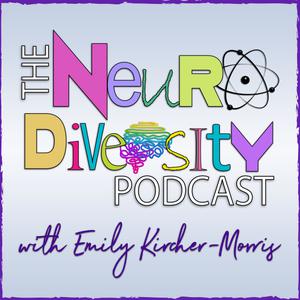 Neurodiversity Podcast
Neurodiversity Podcast
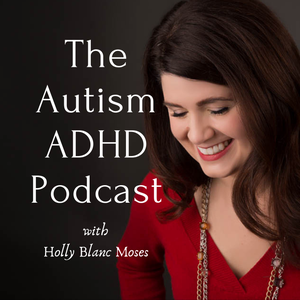 THE AUTISM ADHD PODCAST
THE AUTISM ADHD PODCAST
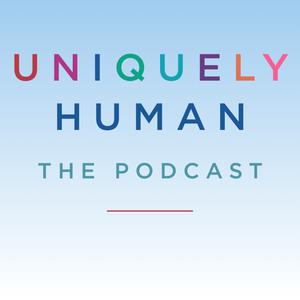 Uniquely Human: The Podcast
Uniquely Human: The Podcast
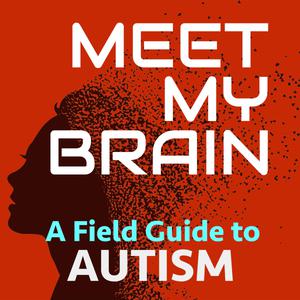 Meet My Autistic Brain
Meet My Autistic Brain
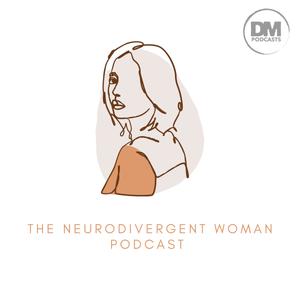 The Neurodivergent Woman
The Neurodivergent Woman